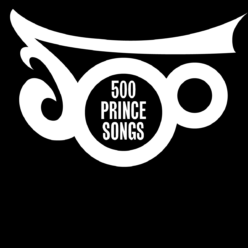Crystal Ball (1998)
Does anybody listen to music anymore? Or is it always the soundtrack to something else? I’m talking about deep listening. Lights off, filling-your-mind-with-nothing-but-the-music listening. My routine with every new album used to be: first listen on headphones, lying down, eyes shut; second listen would be the same, except eyes open so I could pore over the liner notes. I can’t remember the last time I did that – maybe a decade or two ago – and I’m not sure whether that’s down to age or the Age. Maybe only in your salad days you can make time for that kind of indulgence. Or maybe, in this always-on era, mindfulness isn’t something that can be maintained for the length of an album.
I first heard Crystal Ball near the beginning of my journey as a Prince fan. I borrowed its namesake album from my local library and listened to it in the dark. The first ten minutes and 30 seconds blew my woefully unprepared mind. I couldn’t describe today the world the opening title track transported me to. That world no longer exists. But as memorable experiences go, it’s up there with my first gig. From the outside looking in, I was just a kid listening to music in bed, mouth agape. Internally though, I was being led on an alien safari over bewildering and beautiful terrain. I can’t tell you what it did to me but my body will never be the same
Crystal Ball was first housed on the abandoned Dream Factory project, and then became the title track of the album Prince submitted to Warner Bros in 1986. The label baulked at the size of this triple-disc release and asked him to cut it down, eventually resulting in Sign o’ the Times and this epic orchestral suite languishing in the vault for over a decade – its Clare Fischer strings frequently plundered for other songs: The Future, Push and Violet the Organ Grinder among others.
The triple-album eventually released in 1998 shares only two songs with the one submitted twelve years earlier – Good Love and Crystal Ball. Good Love had already been released (a slightly different edit appeared a decade earlier on the Bright Lights, Big City soundtrack) but this was the first official outing of the title track masterpiece and it warranted taking that headline slot. Its broad shoulders carrying a project that would soon balloon and swallow a further two albums in order to pacify fans upset by production delays.
Fans immersed in the murky world of bootlegs may have already been acquainted with this mysterious beast. There are unedited versions circulating that are even longer, with Susannah delivering a monologue about sisters and brothers in the purple underground. “It seems when we’re in danger everything gets black. Don’t you wanna ball?” she asks, leading Prince to sweep us off our feet with some uplifting major synth strings – a ray of sunshine thats ends on a souring minor chord and Susannah rescinding the invite. ‘Maybe not”, she teases as we’re thrown back down into the bowels of an earthy bass solo. After Clare Fischer added his strings, this flow-disrupting section was edited out, along with some jarring lyrics about an elderly couple dying in a missile blast.
We know something about what sparked its bleaker lyrics, written in what he later called a “deepbluefunk depression”. They were penned during a week of global uncertainty and heightened fear. Prince had his filming trip in France cut short after the US launched an airstrike on Libya in retaliation for a discotheque bombing. He immediately returned to Minneapolis due to safety concerns about terrorism and two days later Crystal Ball was in the can. Its exploration of making love while the bombs drop was an update to 1999’s partying during the apocalypse, and a theme he would tweak further on its replacement, Sign o’ the Times, where love and specifically procreative sex become the antidote to the surrounding carnage. He would also revisit Crystal Ball’s twin themes of sex and fortune-telling on 1994’s Come.
Other details, like the “pictures of sex” line that references a mural Susannah had drawn near his studio, help fill in details but ultimately fail to show us the film that was playing in his head when he wrote this sprawling soundtrack. Even its deleted scenes confuse more than they enlighten. Yet that is part of Crystal Ball’s allure. You’re being swept away by something bigger than yourself. Something permanently on the edge of your understanding. It’s not a song that works well as background music, it’s a song that needs to swallow you whole…. to get your mind, body and soul hitched.
If ever a song warranted deep listening, it’s this one. Turn off the lights, turn up your headphones and follow the pounding kickdrum and beckoning panflutes down into a garden of unearthly orchestral delights. An inner sanctuary where exotic orchids bloom and the sirens ward off the darkening night.


